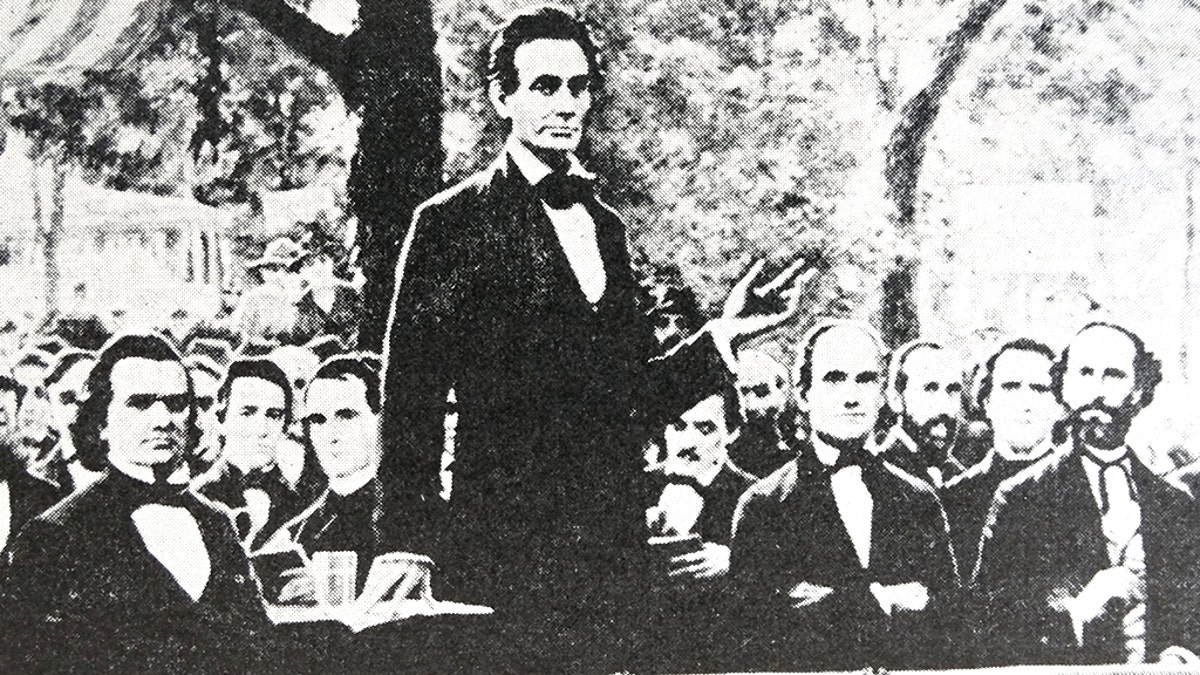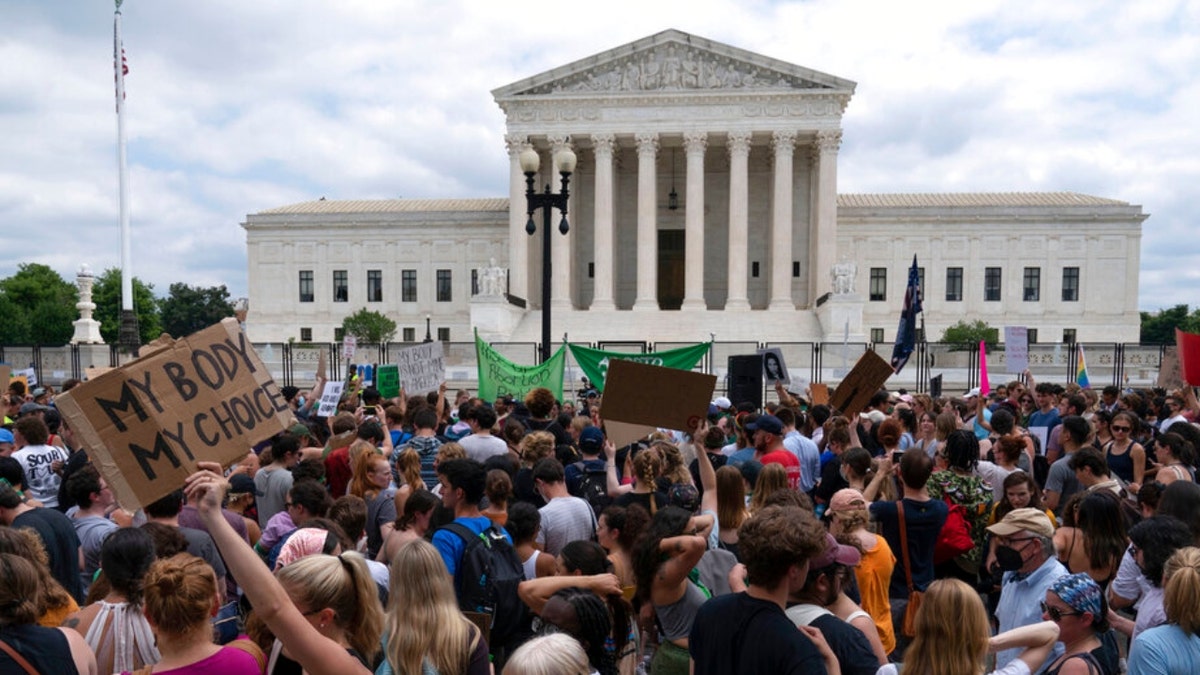MSNBC's Ali Velshi credits foreign dictatorships for their abortion policies
MSNBC host Ali Velshi slammed the Supreme Court for its ruling on abortion and gave credit to authoritarian foreign regimes for their abortion policies..
Washington Post opinion columnist Eugene Robinson wrote in a scathing July 4 piece that modern Republicans are squandering the legacy of President Abraham Lincoln with their "oppressive, retrograde policies."
He warned, "The Republican Party is trying to realize a revanchist vision of America in which much of the progress toward a fairer, more equitable society that we’ve seen over the past half-century is rolled back."
The Washington Post opinion writer quoted both Lincoln's "A House Divided" speech and Matthew 12:25 and said that reflecting on those words made him "worried about how Lincoln’s political party is recklessly testing his wisdom" on issues like abortion.
BLOOMBERG OPINION PIECE SAYS ENDING ROE V. WADE IS ‘INSTITUTIONAL SUICIDE’ FOR SUPREME COURT

MEET THE PRESS -- Pictured: Eugene Robinson, Columnist, Washington Post, as he appeared on "Meet the Press" in Washington, D.C., Sunday, May 22, 2011. (Photo by William B. Plowman/NBC/NBCU Photo Bank via Getty Images)
Apropos of nothing, he claimed the Supreme Court's recent rulings on "abortion, guns and the environment" all "come in defiance of public opinion, according to polls." He then went on to bolster that idea by writing, "House Speaker Nancy Pelosi (D-Calif.) is fond of citing another Lincoln quote: ‘With public sentiment, nothing can fail; without it nothing can succeed. Consequently he who moulds public sentiment goes deeper than he who enacts statutes or pronounces decisions. He makes statutes and decisions possible or impossible to be executed.’"
In talking about executing laws against abortion, Robinson harkened back to the Fugitive Slave Act of 1850: "One of the milestones on the downward spiral toward the Civil War was the Fugitive Slave Act of 1850, which required that African Americans who managed to flee to free states be returned to bondage."
He then asked, "What about women who reside in a state where abortion is banned and who cross state lines to have their pregnancies safely and legally terminated?"
This idea that states having separate laws on abortion is somehow parallel to oppression and slavery is an increasingly common sentiment among liberal commentators.

Abraham Lincoln (standing) in one of a series of seven debates regarding slavery with Stephen Douglas (at Lincoln's right), his rival for a seat in the Senate. These debates permitted both candidates to discuss their views on slavery. (Photo by: Universal History Archive/UIG via Getty images)
NEW YORK TIMES OPINION PIECE LIKENS ROE V. WADE REVERSAL TO SLAVERY: 'FORCED REPRODUCTION WAS QUEEN'
MSNBC host Ali Velshi appeared to condemn the same concept of states having different abortion policies during his show, claiming: "It does not matter if abortion is allowed in some states, if it is prohibited in even just one, that America is not truly a free country. If the rights of one single American are taken away, none of us enjoy absolute freedom as citizens of this country."
While Robinson noted that America is not yet on the verge of civil war per se, it nonetheless is continuing to polarize: "I am not predicting a second Civil War, and I have to believe we’ll find some way forward." He suggested that one of the "troubling" similarities between "now and the 1850s" is that "oppressive, retrograde policies being enacted in some states have an impact in all states."

Abortion-rights protesters gather outside the Supreme Court in Washington, Friday, June 24, 2022. The Supreme Court has ended constitutional protections for abortion that had been in place nearly 50 years, a decision by its conservative majority to overturn the court's landmark abortion cases. ((AP Photo/Jose Luis Magana))
CLICK HERE TO GET THE FOX NEWS APP
He appeared to assure liberal readers that despite the loss on abortion, ousting conservative ideas politically is merely a matter of time: "Americans who want to live in a nation where women have autonomy over their own bodies, where appalling levels of gun violence are not seen as the price of freedom, where science is valued over superstition and where faith is a matter of personal belief rather than public imposition are no less passionate in our views than those who disagree. And we have numbers and history on our side. A minority that wants to take the nation backward cannot, in the end, prevail."








































